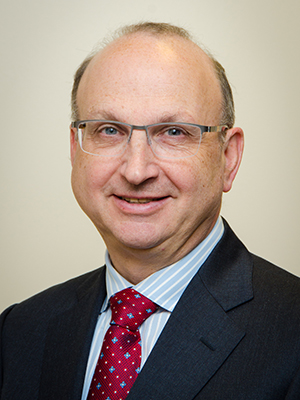Message from Norman Rosenblum, INMD Scientific Director
October 2021

I recently read a wonderful article by Carolyn Johnson in the Washington Post highlighting the prestigious 2021 Lasker-DeBakey Clinical Medical Research Award presented to Drs. Katalin Karikó and Drew Weissman for the discovery of a new therapeutic technology based on the modification of messenger RNA—enabling rapid development of the highly-effective COVID-19 vaccines. Both of these illustrious scientists are now ‘household names’, because of their foundational and translational work leading to the development of mRNA vaccines that have become an essential tool in fighting the global pandemic and saved millions of lives around the world.
We are all familiar with the oft-told story that these vaccines were produced in less than 1 year, 11 months in fact. What Johnson’s article illustrates is the critically important decades-long efforts that preceded generation of these vaccines. Karikó and Weissman, two basic scientists with different passions – laid the foundations for the vaccine development by targeting dendritic cells, on the one hand, and investigating how to use mRNA to deliver medicines, on the other. Realizing the complementary nature of their ideas, the scientists decided to collaborate and then spent decades working on fundamental biological issues that would be needed to be addressed to harness the translational potential. It is this decades-long pursuit that is also chronicled by Lynda Stuart’s article on this subject in the Clinical Implications of Basic Research section of the New England Journal of Medicine on October 1, 2021. Reading about Karikó’s and Weissman’s work to mitigate the recognition of mRNA by the immune system and the resultant life-threatening inflammatory storm, the comparative biology of foreign versus ‘self’ RNA species, and their simple idea to modify mRNA chemically to avoid immune recognition and promote mRNA-dependent protein production was fascinating. I would recommend both the articles as well as a video that CIHR produced entitled, Ask a Scientist; Was the science behind the COVID-19 vaccines rushed? which explains how the vaccine development built on the foundation of years of basic science research.
This leads me to think about the state of our capacity in Canada to address fundamental issues of human biological systems and their disorders at the level of basic science and the plethora of fundamental issues of biology and pathobiology that remain unsolved in the diverse fields that pertain to the INMD mandate – nutrition, metabolism, gut, kidney and liver. What is our capacity to transform fundamental discovery for the benefit of Canadians and globally? INMD has recently launched a new strategic plan which is focused on nutritional and metabolic health. Our plan recognizes the importance of discovery and translation at the level of heterogeneity, equity and capacity-building in order to optimize the health of our citizens. Thus, it is timely that we consider the condition of our research community in engaging in the fundamental discovery and translational research necessary to address our vision. I invite all of our stakeholders – individuals, teams, networks, and organizations – to engage with me and my INMD staff to address these issues and to propose strategies to optimize our potential to realize our goals. Over the coming months, INMD will be engaging with many of our stakeholders to address these issues within the context of implementing the new INMD Strategic Plan.
References:
- Johnson C. A scientific hunch. Then silence. Until the world needed a lifesaving vaccine. Washington Post. October 1, 2021
- Stuart L. In gratitude for mRNA vaccines. NEJM. October 1, 2021. DOI: 10.1056/NEJMcibr2111445
- Date modified: